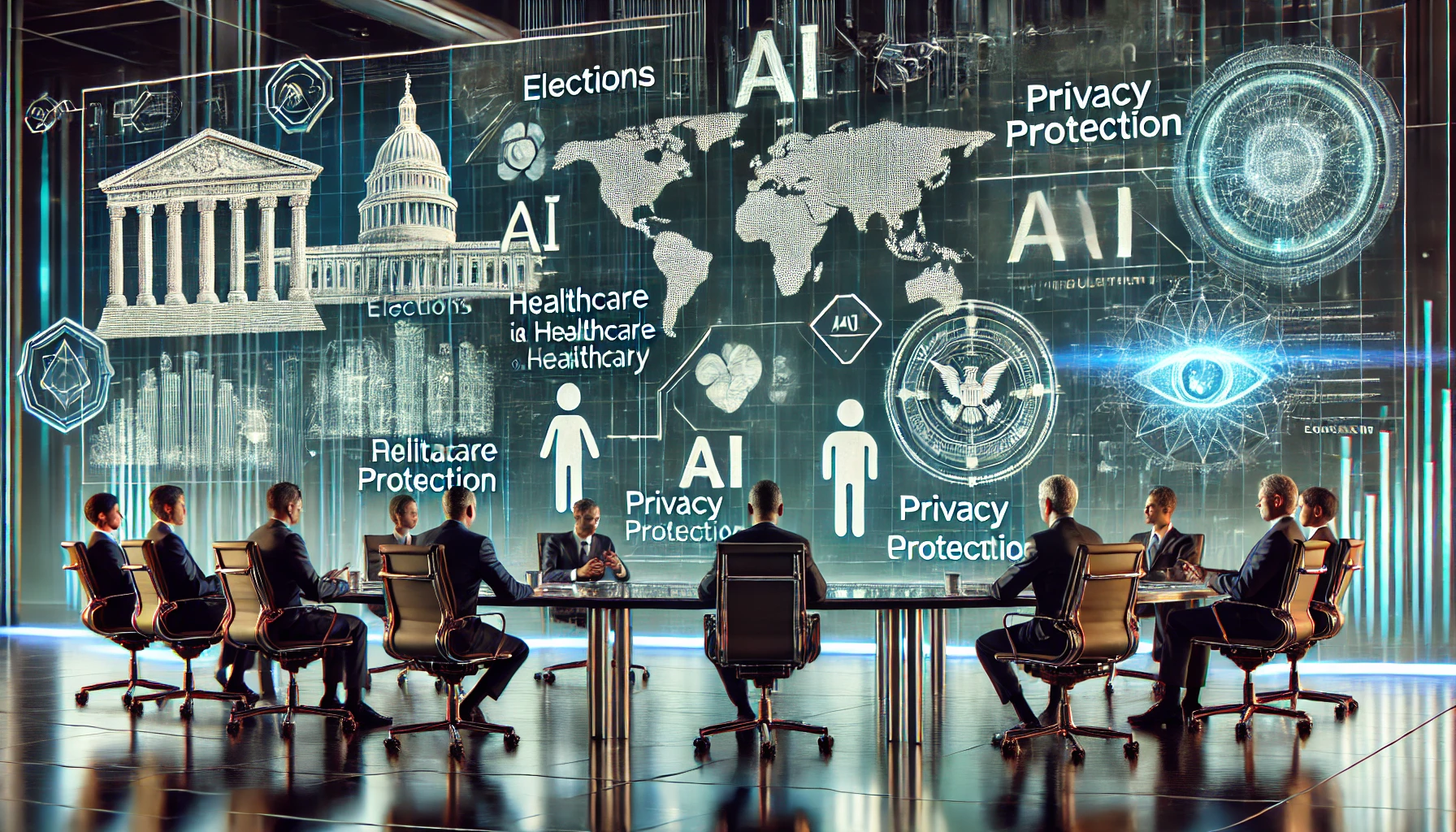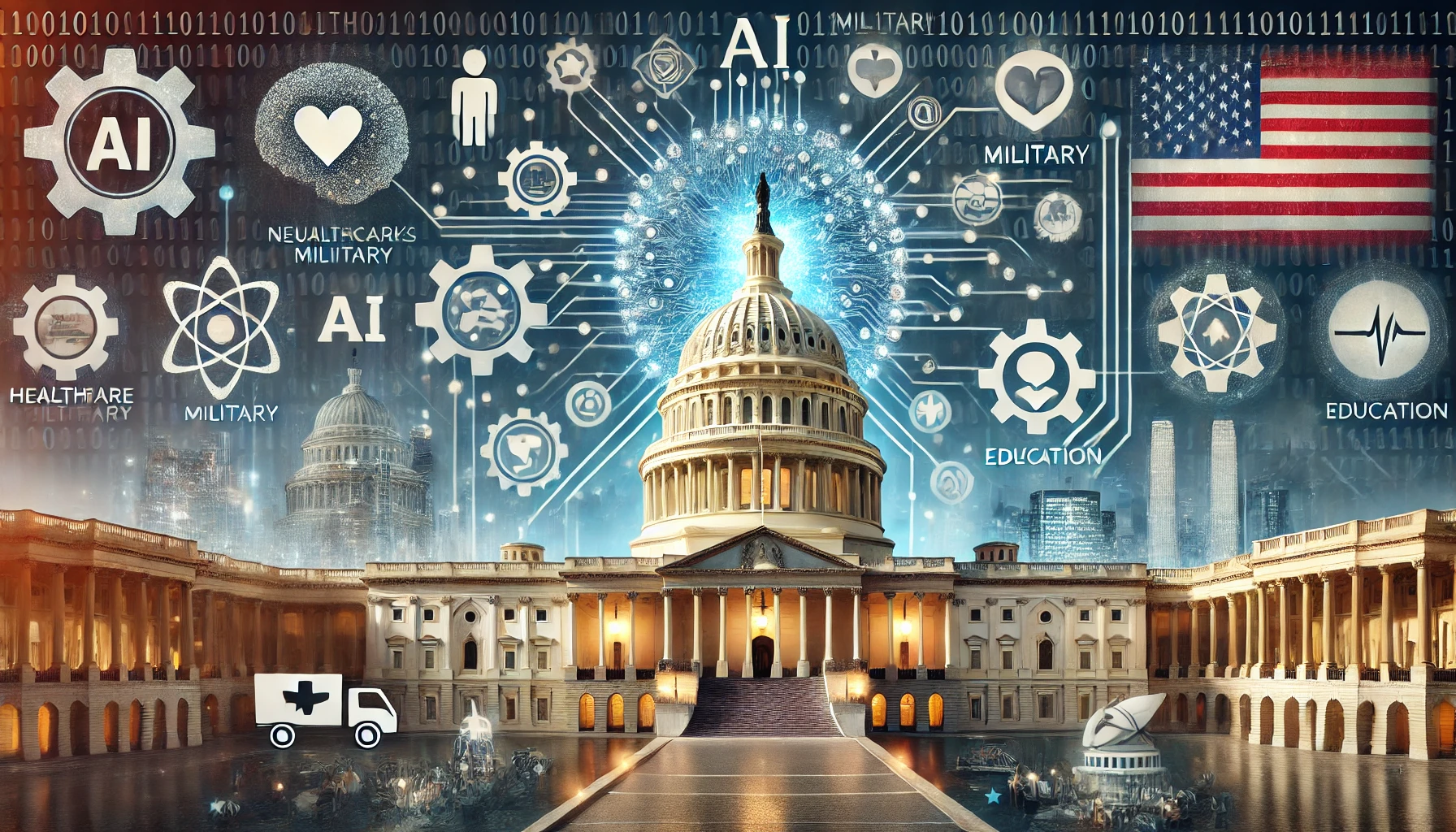Artificial intelligence (AI) has rapidly become a central technology across many industries, from healthcare and education to military operations and election integrity. Recognizing the profound impact of AI, the Biden administration issued an executive order in October 2023 that is now setting the course for U.S. AI regulation. This policy framework is shaping the future of AI development and deployment, with Congress paying close attention to the implications in key areas such as elections, healthcare, military, and education.
The Biden Administration’s AI Executive Order
The executive order from October 2023 marked a critical moment in the regulation of AI in the United States. The aim of the order was to ensure that AI technologies are developed and deployed in ways that are ethical, transparent, and secure. As AI systems become increasingly integrated into society, the administration has emphasized the need for responsible governance, focusing on risk management and minimizing harm while fostering innovation.
Key components of the executive order include:
- Ethical AI development: Ensuring that AI systems are developed with fairness, transparency, and accountability.
- AI safety standards: Promoting research into AI safety to prevent misuse or unintended consequences.
- Privacy protections: Safeguarding individual data privacy in AI applications.
- Government use of AI: Establishing clear guidelines for how AI can be used within federal agencies and military operations.
This policy is designed to maintain a balance between encouraging technological progress and ensuring that AI is deployed responsibly, avoiding potential societal harms.
AI in Elections: Safeguarding Democracy
One of the most scrutinized aspects of AI in the U.S. is its potential impact on election integrity. With the 2024 elections approaching, Congress is particularly focused on how AI could be used to influence voter behavior or manipulate election outcomes. Deepfakes, automated misinformation campaigns, and data-driven voter targeting are some of the concerns policymakers are addressing.
The Biden administration’s executive order emphasizes the need for stricter oversight of AI tools used in elections. This includes developing standards to detect and counteract AI-generated misinformation and ensuring that AI-driven political advertisements are transparent and regulated. The goal is to prevent AI from undermining democratic processes while allowing its use for positive advancements, such as improving voter engagement and streamlining administrative tasks in elections.
AI in Healthcare: Transforming Medical Innovation
AI’s application in healthcare has the potential to revolutionize patient care, diagnostics, and medical research. However, with these opportunities come concerns about patient data privacy, algorithmic biases, and the ethical use of AI in medical decision-making. The Biden administration’s policy is shaping how AI is integrated into healthcare systems by enforcing regulations that prioritize patient safety and data security.
Healthcare AI tools, such as predictive algorithms for diagnosing diseases or managing hospital resources, must comply with rigorous ethical standards. The administration’s focus on privacy ensures that sensitive patient data is not misused, while also promoting the responsible development of AI that can reduce healthcare disparities and improve access to quality care.
AI in Military Operations: Ethical Challenges
AI has also found its place in military operations, offering enhanced capabilities for surveillance, cybersecurity, and autonomous weapon systems. While AI-driven technologies present significant advantages, they also raise ethical and operational challenges that require careful oversight.
The 2023 executive order emphasizes the need for ethical AI development in defense applications, advocating for the creation of international AI safety norms. Congress is tasked with ensuring that AI is used in ways that align with international laws and human rights standards. This includes limiting the use of autonomous weapons and ensuring that AI-driven military operations are transparent, accountable, and do not compromise global stability.
AI in Education: Shaping the Future of Learning
In the education sector, AI holds promise for personalizing learning experiences and improving administrative efficiency. However, its integration also raises concerns about data privacy, student monitoring, and access to technology. The Biden administration’s AI policy seeks to regulate how AI is used in schools, ensuring that it benefits both students and educators.
Congress is exploring ways to leverage AI for equitable access to education while safeguarding student data. AI tools in education must comply with privacy standards and be free from biases that could affect educational outcomes. The focus is on creating AI systems that promote inclusivity and cater to the diverse needs of learners across the country.
The Path Forward for U.S. AI Regulation
As AI continues to reshape industries and society, the Biden administration’s executive order from October 2023 serves as a foundational step in ensuring that this transformative technology is harnessed responsibly. Congress will play a critical role in refining AI regulations, particularly in high-stakes areas such as elections, healthcare, military operations, and education.
The future of AI regulation in the U.S. hinges on striking the right balance between innovation and safety. As the U.S. government continues to navigate this evolving landscape, the emphasis will remain on protecting public interests, safeguarding democracy, and ensuring that AI is developed and used in ways that benefit society as a whole.




